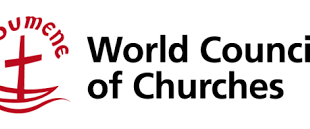Related Articles
Ethiopia’s promise of cheap labour and a vast consumer market is colliding with the realities of political instability and legal uncertainty, according to a new US assessment.
The 2025 Investment Climate Statement, released this week by the US Department of State, warns that Ethiopia’s reform drive, headlined by the July 2024 decision to float the birr, is struggling to overcome persistent risks that weigh heavily on investor sentiment.
“The Government of Ethiopia announced macroeconomic reforms in July 2024 headlined by the adoption of a floating exchange rate, eliminating the prevailing currency peg that had overvalued the Ethiopian birr by more than 100 percent, which spurred renewed interest in Ethiopia as an investment destination,” the report said.
That optimism has since dimmed. By late 2024, a gap between official and parallel exchange rates re-emerged, fuelling foreign currency shortages and reviving inflationary pressures. Despite a 10.5 billion US dollars IMF-World Bank package, investors report that bureaucratic bottlenecks, arbitrary tax demands and state interference continue to define the business environment.
“Ethiopia’s investment climate is challenging for U.S. and other foreign businesses,” the report cautioned, citing internal conflicts in Amhara and Oromia that “restrict travel, lead to frequent expropriation of assets by either unscrupulous government officials or members of armed groups, and limit the Government of Ethiopia’s ability to intervene.”
Property rights remain a central vulnerability. The State Department pointed to “corridor development” projects in which tens of thousands of residents and businesses, including foreign-owned ones, were expelled with little notice or compensation. The absence of private land ownership and reliance on long leases exacerbates insecurity, with businesses often caught in disputes between local communities and officials.
Investors also face steep and unpredictable taxation. A small tax base and weak state presence beyond Addis Ababa mean authorities frequently target foreign firms. “A small tax base…leads authorities to target foreign businesses for questionable and excessive tax bills,” the report said.
Infrastructure constraints further add to costs. “Poor infrastructure and an inefficient logistics system, despite boasting Africa’s largest airline, further inflate costs,” it noted. Meanwhile, state-owned enterprises continue to dominate sectors ranging from finance to logistics, enjoying priority access to foreign exchange and land.
The assessment singles out corruption and weak rule of law as persistent deterrents. “Corruption remains a challenge. The absence of an effective dispute resolution system for businesses exacerbates the lack of rule of law more broadly,” the report said. Allegations of judicial interference in commercial disputes are widespread, while lengthy dispute settlements discourage recourse to local courts.
Despite these risks, Ethiopia continues to attract foreign capital. “The largest source of FDI in Ethiopia is China, followed by Saudi Arabia and Türkiye,” the report found, with the United Arab Emirates emerging as a significant player.
The government under Prime Minister Abiy Ahmed (PhD) has made clear that Ethiopia “needs significant inflows of FDI to meet its ambitious growth goals.” But the State Department concluded that without greater political stability, stronger property protections and more predictable regulation, the country’s reform agenda will struggle to translate into lasting gains for investors.
 Association of Ethiopians in Europe Stop Apartheid in Ethiopia ! የዘር ፖለቲካ ለማስወገድ እንታገል
Association of Ethiopians in Europe Stop Apartheid in Ethiopia ! የዘር ፖለቲካ ለማስወገድ እንታገል





